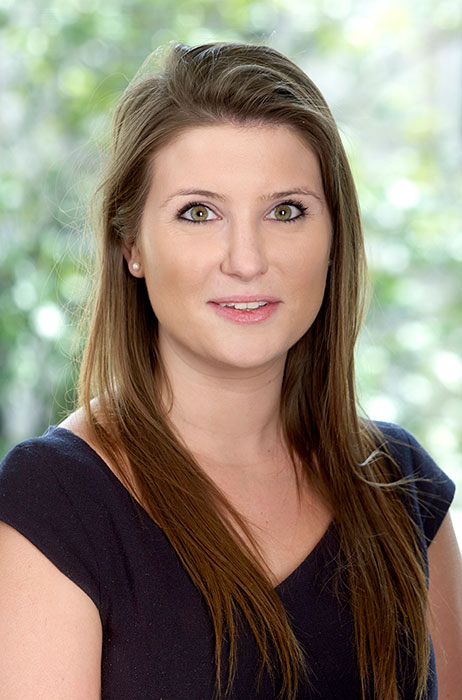

Mother and Fiancé Take Legal Action In Bid To Find Out Whether Earlier Diagnosis Would Have Saved the 25-Year-Old’s Life
The family of a young woman who died from cervical cancer are taking their battle for answers to the Royal Courts of Justice tomorrow, to find out whether negligent delays in her diagnosis caused her death.
Sophie Hague was just 25 years old when she passed away at her home in Surbiton, Surrey on November 19, 2011.
Her devastated mother Suzanne Hague, and fiancé David Rich instructed expert medical negligence lawyers at Irwin Mitchell to investigate Sophie’s care under two GPs at Langley Medical Practice in Surbiton.
The family launched legal action against doctors John Dalzell and Daniel Giles Henry Fish for inappropriate delays in diagnosing Sophie, who visited the practice with concerning symptoms of cervical cancer in November 2009 and February the following year, but was not physically examined on either occasion.
Dr Fish made an admission of liability back in 2014 whereas Dr Dalzell denied liability until the week before trial when an admission was finally made.
Both GPs have now admitted that there were failures to adequately explore the nature and extent of Sophie’s symptoms and undertake a pelvic examination. It is accepted by the GPs that had a pelvic examination been undertaken at either consultation, Sophie’s cervix would not have looked normal and she would have been referred to a gynaecologist under the two week rule. This would have led to earlier diagnosis and treatment of Sophie’s cervical cancer.
The trial, which is expected to last three days, will begin at the Royal Courts of Justice tomorrow [Tuesday October 18]. There, a judge will decide whether Sophie’s death would have been avoided had she been diagnosed and treated at an earlier point in time.
Suzanne said: “Sophie was a beautiful and popular young woman with everything to live for.
“Her loss has devastated us all - her fiancé, Dave, younger brother and sister Tom and Emily, and father Paul – as well as her extended family and many friends from school and university, where she studied exercise science.
“Earlier in the year when she first experienced her symptoms, she had returned from the trip of a lifetime, to Bali, with a best friend. The following year, when she was finally diagnosed, she had just started a new job and career in medical practice management.
“Sophie and Dave had planned to marry and have a family – all things which were not only taken from Sophie in a few short months, but from Dave as well.
“We hope the trial will help us understand whether Sophie’s death could have been avoided and help raise awareness of the symptoms of cervical cancer.
“As a family we want lessons to be learned from Sophie’s death which will prevent other young women suffering as she did and instead lead to timely diagnosis and treatment to save lives.
“Many GPs – especially male ones - need to have a greater understanding that young women may be reluctant to discuss their symptoms because of fear and embarrassment but it is their job to overcome this in whatever way possible, suggesting a nurse or female GP if necessary, and ensuring that physical examination and/or referral is carried out whenever red flag symptoms are suspected.”
Sophie presented at Langley Medical Practice in November 2009 where she saw Dr Dalzell and February 2010 when she spoke with Dr Fish, both times complaining of unusual vaginal bleeding and severe abdominal pain. She was not physically examined on either occasion.
It was not until late June 2010 that Sophie had an ultrasound examination – arranged by her mother, who was suspicious of her ongoing symptoms – that a cervical mass was discovered, later identified as cervical cancer. This ultrasound scan was arranged via Suzanne’s husband, Paul, who is a Superintendent Radiographer at Chelsea & Westminster Hospital.
Following her diagnosis, Sophie underwent a hysterectomy as well as a five-week course of chemo-radiotherapy, and a four-month clinical trial which helped stabilise the disease. Because of the urgent need for surgery, she had no time to arrange for her eggs to be frozen before the operation.
On September 21, 2011 Sophie was rushed to The Royal Marsden Hospital with uncontrollable vaginal and bladder bleeding and needed emergency surgery to remove her bladder, bowel and part of her vagina.
Sophie never recovered from the surgery and on October 26 was sent home to spend her final days with her family.
Georgie Cushing, an expert medical negligence lawyer at Irwin Mitchell, representing Suzanne and David, said: “Cervical cancer is a treatable disease with a good long term prognosis when it is diagnosed early, but delays can have terrible consequences.
“In this case, had Sophie’s stepfather not arranged an ultrasound scan for her, Sophie’s cervical cancer would have gone undiagnosed for even longer.
“Any symptoms should not be dismissed; it is vital that women know what to look out for and take medical advice but, equally, that doctors pay attention to their concerns.
“Sophie was a young woman embarking on the next exciting chapter of her life with David, when her life was cut tragically short.
“It is important for her family to know whether her death could and should have been prevented but it is also important for them to raise awareness of the importance of early diagnosis and treatment of cervical cancer, especially in young women.”


